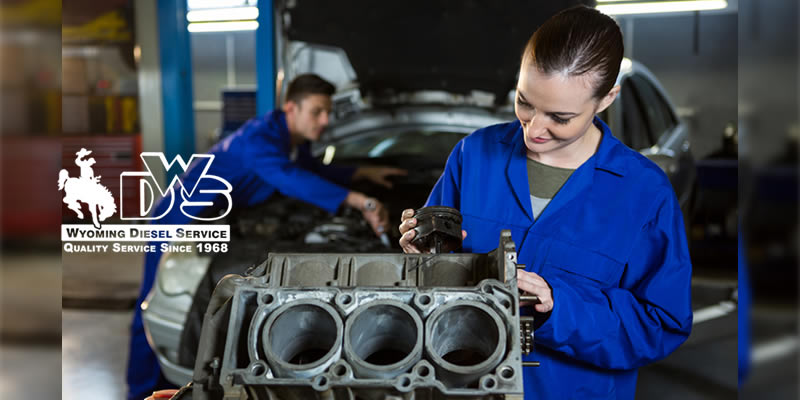Every automobile needs regular maintenance and constant monitoring in order to prevent unexpected (and expensive) repairs. Generally, when a diesel engine begins to lose its power and efficiency, you’ll want address any potential issues as quickly as possible. Diesel engine failures can be costly and lead to a lot of issues, so it's crucial that diesel owners learn to identify the signs of serious problems.
What is a Diesel Engine Overhaul?
When we say that a diesel engine needs a "in-frame overhaul," we are referring to the fact that significant components of the engine need to be replaced in order to restore full power and functionality. The extent to which parts are replaced depends on how serious the engine failure is as well as on that engine’s specific repair history.
In most cases, a base overhaul includes taking apart the upper and lower half of the engine and performing a deep cleaning. During this process, the mechanic will carefully inspect parts to see whether or not they can be reused. He or she will also replace several important components, such as cylinder packs (pistons, liners, wrist pins, liner O-rings, and ring sets) and all associated gaskets.
Depending on the customer's budget and the vehicle's maintenance history, it's possible that other items will need to be replaced as well, such as cylinder heads, injectors, oil pumps, etc.
Signs Your Engine Might Need an Overhaul
There are a number of signs and symptoms you can look for to identify whether or not your engine is in need of an overhaul. Keep in mind that the sooner you address these issues, the better a chance you have of keeping your engine running smoothly.
Oil Sludge or Metal Shavings
Oil sludge is wasted oil, grime, and sometimes coolant that gets mixed with your oil and changes its thickness. If you discover oil sludge while changing your vehicle's oil, it's safe to assume that your engine's components are not being lubricated properly. If your diesel engine is not in need of an overhaul immediately, you can bet that it will be soon enough.
Another sign that the components of your engine are in danger is the appearance of metal shavings in your oil. Oil acts as the "blood" of the engine, so it's easy for these small metal bits to be spread to multiple components. In most cases, by the time you see metal shavings, it's usually best to do an overhaul A.S.A.P.
Increased Oil Consumption
If you start to notice that your diesel engine is consuming more oil than usual, you'll want to investigate the reason why. In a lot of cases, consuming excessive amounts of oil can be a symptom of worn-out piston rings, which allow diesel fuel to slip past the rings and enter the engine crankcase. Unlike oil, diesel fuel is not a good lubricant and will almost surely cause expensive engine damage.
Excessive Exhaust Smoke
Most diesel owners pay little attention to how much exhaust their vehicles put out. However, if you do happen to observe excessive amounts of smoke, it's usually a pretty good indication of a problem.
Blue smoke, for instance, is an indicator that your engine is burning oil. This means diesel fuel could be flowing the wrong way and entering your crankcase. White smoke, on the other hand, indicates that coolant is leaking into the engine or that your fuel isn't burning off completely. If you choose to ignore these warning signs, you can expect a costly and time-consuming repair job down the line.
An Unidentified Knocking Sound
While it's rarely good to hear anything unfamiliar from your engine, a loud knocking from under the hood is bad news for a diesel vehicle. Not only is it annoying, but it usually indicates a compression issue, faulty fuel injectors, bad bearings, or a failure of the wrist pin.
Compression Loss
A loss of power and performance is usually related to a condition called "compression loss." This is where your engine cylinders have started to leak, and it can drastically reduce engine output. If you want to return power to your engine, an overhaul is usually the best remedy.
In Conclusion
Looking for these symptoms is a great way to narrow down what might be going wrong with your diesel engine, and can keep you from performing a full overhaul if you catch them early enough. Still, sometimes all the protective and preventative measures in the world can't keep your engine out of the woods. To find out if it's time for an overhaul, start by tracking down a trusted professional mechanic who can help you perform the right diagnostics.


Thank you for explaining that excessive exhaust smoke is not great, especially blue smoke. My friend has been talking about how he’s seeing smoke come out of his exhaust lately. I’ll be sure to mention this to him to see if he’ll get it fixed.